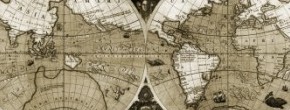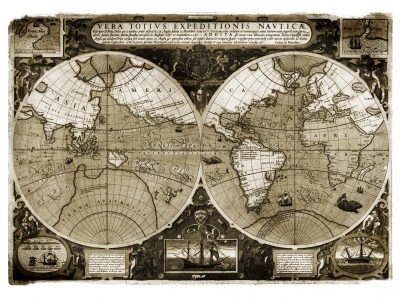In thinking about globalization, history as a subject, is often missing and this is, in my view, a serious oversight. History can help in understanding the present, and the future of a country, territory, or region and anyone doing significant amounts of business in a place would do well to study its history.
A relatively superficial look, for example, of the history of Iraq shows how the Ottomoman empire actually had three different provinces Mosul, Baghdad, and Basra and that these divisions correspond well to their present political and ethnic divisions of the country. Eastern Libya, which is presently in open rebellion against the Quadaffi regime was called Cyrenaica or Pentapolis in antiquity and was also an administrative unit under the Ottomomans.
The first reason to study history is to understand the present situation in a country or region and thus become more sensitive to ethnic divisions and national rivalries in dealing with partners, customers, suppliers and local teams. This is not to say that one should necessarily make personnel decisions based on such knowledge but awareness and sensitivity can often make a huge impact on the success of business endeavour. In fact, a minimal understanding of the history of a location is necessary simply to be polite!
The second reason to study history in the context of globalization is that it also gives clues to the future. China, for example, is at the top of many company’s internationalization agenda but in my experience, many of the executives involved in this expansion have only the vaguest idea of Chinese history and all subscribe to, what I believe, is a simplistic view of China’s future. This simplistic view is often expoused by economists and consists essentially of extrapolating China’s economic growth for the next 20, 30 or 50 years and discussing in which year it will surpass which of the Western Economies.
The problem with this view is that it does not take into account the history of China or in fact of other phases of economic growth in the world. Imagine someone looking at the future of Europe in 1910 and looking only at macroeconomic indicators. Looking ahead to 1950, one would talk about a very prosperous Europe and essentially fail to take into account the economic and geopolitical currents which eventually produced two world wars, millions of casualties and tremendous upheaval in all aspects of European life.
After the fall of the Tang dynasty in 907, China actually went into a period of instability where a series of governments rose and fell in Northern China and a series of ten independent states formed mainly in the South. Today China’s coastal areas are experiencing un precedented economic growth but there are regions which are still far behind them. While the central government reportedly acknowledges the problem and is investing in infrastructure in these regions, there are powerful centrifugal forces emerging that could potential put the territorial integrity of China into question.
My point here is not that China will break up into smaller states or that a Chinese civil war is inevitable or even probable but that there is a possibilty of such things happening and they happened before both in China and other places where a central government diverted economic resources from wealthier territories to poorer ones. What does seem likely, at least to me, is that something will happen to upset the economists’ rosy picture of China’s future.
History thus offers insights into the present and future of countires and regions. What to do with that insight, will be the subject of a future posting on this space.



